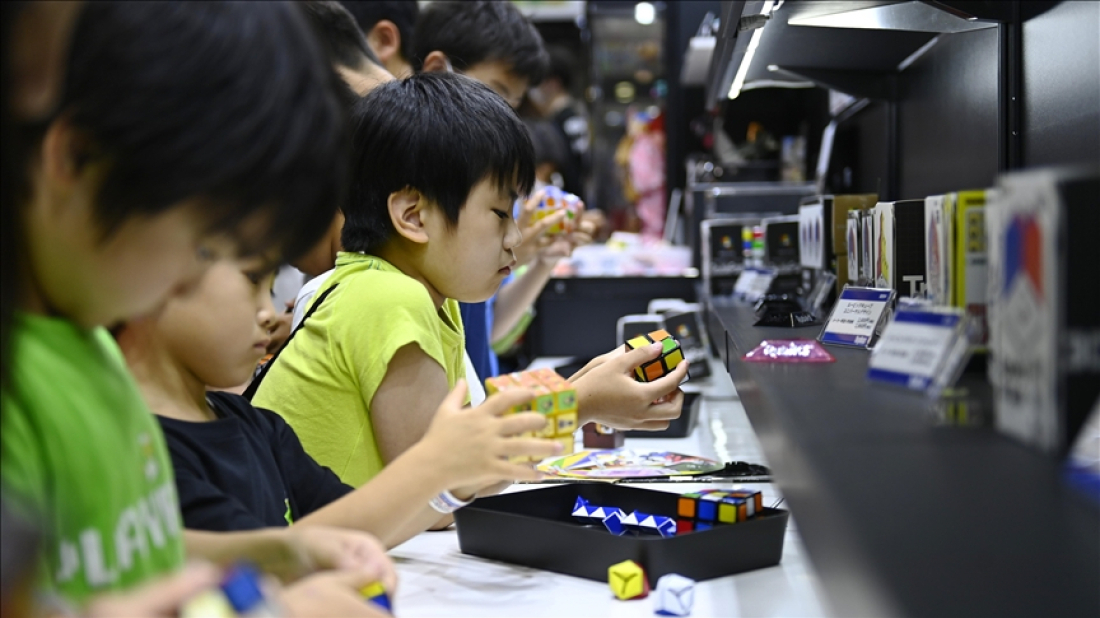Kazakhstan vows to fast-track AZAL crash investigation amid rising diplomatic tensions
Kazakhstan has vowed to speed up its investigation into the Azerbaijan Airlines (AZAL) crash near Aktau, as mounti...

Japanese children continue to struggle with mental health issues, ranking 32nd out of 43 developed and emerging countries, according to a new UNICEF report, despite notable improvements in education and strong physical health indicators.
Japan continues to face significant challenges regarding the mental well-being of its youth, ranking 32nd among 43 countries in a new report released Wednesday by the United Nations Children's Fund (UNICEF). While the ranking is a slight improvement from 37th in 2020, Japan’s youth suicide rate has worsened, rising to the fourth highest among wealthy nations - a stark increase from 12th place just a few years ago, according to Kyodo News.
In contrast, Japan maintained its top position in physical health and improved to 12th place in academic and social skills. Overall, Japan ranked 14th when all well-being indicators were combined.
The UNICEF report assessed countries that are members of the Organisation for Economic Co-operation and Development (OECD) and the European Union across three core areas: mental well-being, physical health, and academic and social skills. The Netherlands ranked highest overall, while the United States and six other countries were excluded from parts of the assessment due to insufficient mental health data.
The findings reflect the ongoing impact of the COVID-19 pandemic, which has disrupted education systems and strained children's mental and physical health across developed nations. The report calls on all governments to take stronger action to address the growing challenges faced by young people, especially amid global instability caused by pandemics, conflict, and climate change.
UNICEF urged countries to implement comprehensive mental health support systems and to ensure that every child can grow up in a safe, healthy, and nurturing environment.
The Kremlin is utilising the recent United States and Israeli military strikes on Iran to validate its ongoing war in Ukraine. Russian officials are pointing to the escalation in the Middle East as evidence that Western nations do not adhere to international rules.
Saudi Arabia’s state oil giant Saudi Aramco closed its Ras Tanura refinery on Monday following an Iranian drone strike, an industry source told Reuters as Tehran retaliated across the Gulf after a U.S.-Israeli attack on Iranian targets over the weekend.
The Middle East crisis intensifies after the deadly attack on the compound of the Supreme Leader of Iran Ali Khamenei on Saturday that killed him, other family members and senior figures. Iran has launched retaliatory strikes on U.S. targets in the region.
U.S. President Donald Trump said the U.S. military has enough stockpiled weapons to fight wars "forever"; in a social media post late on Monday. The remarks came hours before conflict in Iran and the Middle East entered its fourth day.
Türkiye raised its security level for Turkish-flagged vessels in the Strait of Hormuz to Level 3 on Sunday (2 March). The development follows Iranian restrictions on shipping after U.S. and Israeli strikes and confirmation of Supreme Leader Ali Khamenei’s death.
Measles cases across Europe and Central Asia fell sharply in 2025 compared to the previous year but health officials have warned that the risk of fresh outbreaks remains unless vaccination gaps are urgently addressed.
A Florida university has become a new hotspot in a widening U.S. measles outbreak, with health officials confirming multiple infections and hospitalisations.
The World Health Organization has added the Nipah virus to its list of the world’s top 10 priority diseases, alongside COVID-19 and the Zika virus, warning that its epidemic potential highlights the global risk posed by fast-spreading outbreaks.
Belgian authorities are examining suspected cases of infants falling ill after consuming recalled Nestle baby formula, amid warnings that confirmed infections may be underestimated due to limited testing requirements.
Two Nipah infections involving health workers in India have triggered heightened screening across Southeast Asia as authorities move to prevent the high fatality virus from spreading beyond the country.
You can download the AnewZ application from Play Store and the App Store.

What is your opinion on this topic?
Leave the first comment